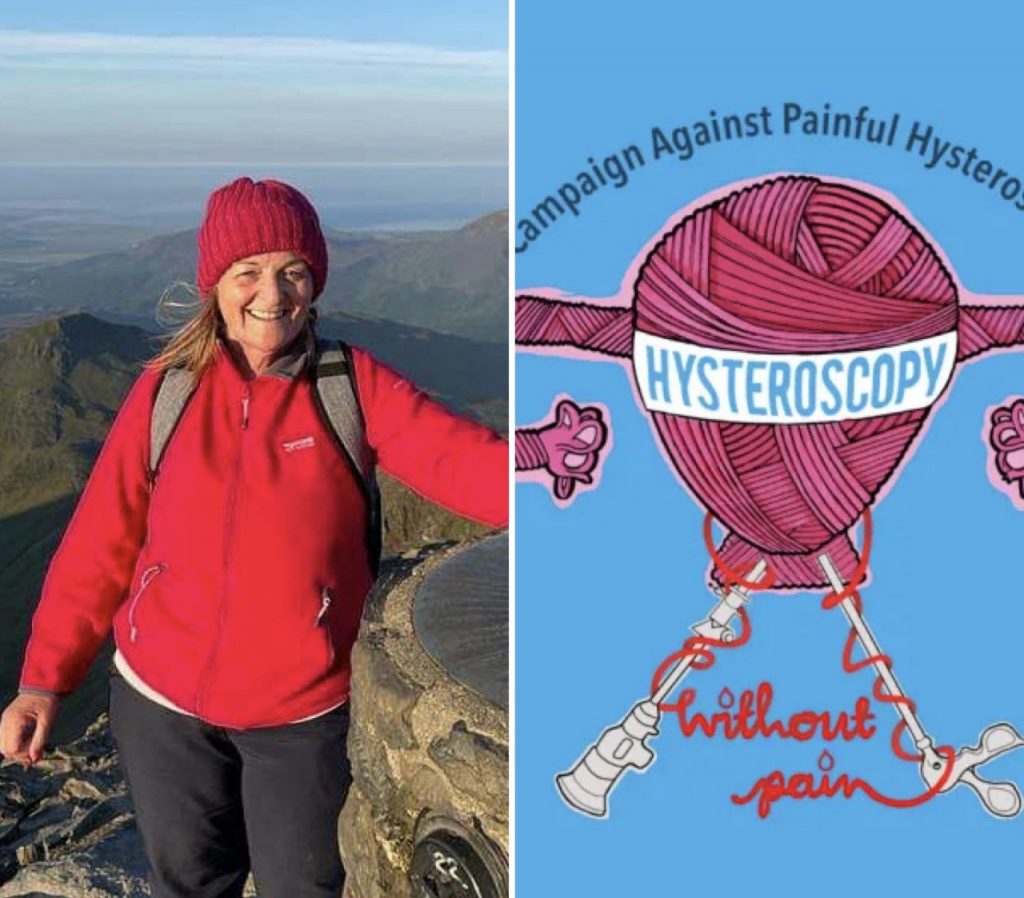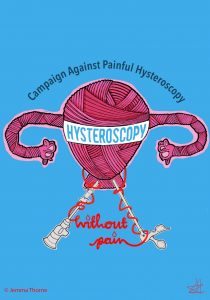
A Salford woman who suffered an “agonising” gynaecological procedure at Salford Royal Hospital has joined a national campaign to improve pain relief for patients.
Deborah Drinkwater says she suffered the “most excruciating pain” during a hysteroscopy in 2017 and, along with thousands of other women in the UK, was not informed of her right to a general anesthetic.
A hysteroscopy is a common procedure that uses a camera to examine the womb in women who have abnormal or heavy bleeding.
Deborah said: “I felt like I was drifting in and out of consciousness, I don’t know whether I was passing out or what, but they carried on they never stopped.”

“The two hysteroscopies I’d had previously were not pleasant. There’s a lot of discomfort there it’s quite undignified, but it was okay. So, when I went in for this third one in 2017 I went into a sort of shock. It was horrendous.”
Ms Drinkwater went on to detail the pain she felt during the procedure.
She said: “The procedure started, and I did experience some pain and she stopped and gave me a local anesthetic, but it didn’t really take effect at all.
“Once the camera went inside, I just had the most excruciating pain. I mean really off the scale. Bearing in mind I’d had two hysteroscopies before, had lots of procedures and had nothing like this whatsoever. The pain was so bad I ended up literally shaking.”
Out of the five members of staff in the room at the time, there were two nurses who stood behind Deborah reassuring her and holding her hand.
Deborah said: “The two nurses were just saying ‘you’re fine’, ‘you’re doing okay’, ‘don’t worry’ and ‘it’ll soon be over’.”
“When the procedure finished, they were trying to get me to leave the room and I couldn’t stand, I couldn’t walk, I was still shaking. They couldn’t get me to stand so they put me on an office chair and three of them wheeled me into another room and laid me on the bed.
“Now I’ve since found out that the reason why they did that is because they had another woman waiting to come in. It was like a conveyor belt, it was horrendous.
“I said to the student nurse ‘I’m so sorry I’ve probably put you off nursing’ because of the way I’d responded. And she said to me, ‘don’t worry about it, the last lady before you screamed throughout’.
“I didn’t get any pre-procedure advice or guidance at all, they might have said something like do you want to take any paracetamol or something like that, but there was nothing, nothing at all.”

After her traumatic experience, Deb took to Facebook to share what she had been through. It was around this time that she joined the Hysteroscopy Action group campaign.
Hysteroscopy Action is a community interest campaign run by women who have had a similar experience to Deborah in hospitals across the UK.
The campaign aims to ensure that women are informed of their rights to safe and effective pain relief during hysterocopies. This can include a local anesthesia, general anesthesia, safely monitored conscious sedation and epidural.
Campaign researcher, Katharine Tylko, said: “Our bottom line is really, what they call informed consent and informed choice so that we’re not tricked into something.”
The Hysteroscopy Action group feels the NHS is neglecting women the choice of anesthesia because of a financial incentive to save money.
Katherine Tylko said: “We’ve collected 1,000+ stories of awful hysteroscopies and we’re trying to use those to lobby the Department of Health to give us choice. However, most hospitals on the ground do not want to do this as it’s much cheaper for them to do a 20-minute procedure in outpatients.”
Hysteroscopy Action collected over 1000 anonymous stories in a dissatisfaction survey aimed at the 5-25% of women who reported severe pain during these outpatient procedures.

The following anonymous comments talk about their hysteroscopy experience at Salford Royal Hospital. Their experience is typical of women across the country whose experience has triggered the campaign.
One person commented: “The gynae and nurses were fabulous and caring, but I don’t think I was well informed beforehand as to what to really expect. I would not have gone alone for the procedure had I known how I would feel afterwards. I was well looked after for 30 minutes afterwards, but leaving the hospital alone, waiting for a taxi I felt numb, shocked, and stunned at what I had just endured.”
Another comment read: “They had a trainee performing the procedure without asking for my consent first. The whole experience was much worse because it was obvious, she didn’t know what she was doing. I felt like a guinea pig. I was literally crying with so much pain.”
Another member of the group said: “Treat women with dignity and respect. Acknowledge that some women are at high risk of pain and because of this all women should be given option of GA or adequate sedation. Listen to women. Value our opinions.”
North West Care Alliance, which manages Salford Royal Hospital, did not respond to a request for a comment.















One Comment